|
Scripture Readings: Isaiah 2:1–5 | Psalm 122 | Romans 13:11–14 | Matthew 24:36–44
“Keep awake therefore, for you do not know on what day your Lord is coming. But understand this: if the owner of the house had known in what part of the night the thief was coming, he would have stayed awake and would not have let his house be broken into. Therefore you also must be ready, for the Son of Man is coming at an unexpected hour.” (Matthew 24:42-44) Have you ever pulled an all-nighter, staying up until the sun rises again? I don’t really recommend it. But when I was younger, it was kind of an exciting thing to attempt on certain occasions… and I still remember the first time I was able to stay awake all through the night: way back in middle school, along with a handful of friends, I was invited to an overnight birthday party, and as you might expect, we found lots of ways to have fun and wind each other up, and several of us decided to try to stay up all through the night. But slowly, one by one, my friends all started to turn in… until only myself and one other friend were left awake. While the others all snored in their sleeping bags, the two of us quietly talked for hours. We looked out the window and together stared into the heavens… I saw my first shooting star that night too. We talked about all sorts of things… keeping each other company, and deepening our friendship… until we started to see the light of dawn slowly filling the sky. After all that waiting, we had made it. And what started off as a childish challenge turned into a special and treasured part of my story… a memory of friendship that even now remains close to my heart. Staying awake can be hard work. It can take lots of effort, especially when all is dark around us. But of course, it’s much easier to stay awake when we have company. As we know, today is the first Sunday of Advent: a season of anticipation and waiting for the coming of Christ. We wait for His coming, at Christmas… for the celebration of the incarnation of Jesus Christ, as the eternal Son of God takes on our humanity… and is born as a helpless babe. But we also wait for His coming again in glory, as we say in the Creed… for Christ’s return not as a child, but as our Saviour King, coming to bring God’s eternal Kingdom to completion. To rescue and restore His creation for good. Each week in Advent, we contemplate a different aspect of the Christian life in this time between Christ’s first arrival, and His final return… and this first week we reflect on the gift of Hope. Hope is deeply intertwined with waiting. It is impossible to hope without also having to wait… and it is intolerable to have to wait without having hope. It is something essential. Something we can’t do with out, even though we don’t always understand it. In fact, there’s a lot of confusion these days about the nature of hope. Hope is not simply wanting something to happen… that’s just a wish or a fantasy. A dream or desire we have that has no real roots in reality. There are lots of things we may want in life that will never occur. And to be honest, that’s a not a bad thing… because so much of what we humans tend to want would actually cause us more grief than good. Hope is much more than wanting something to happen. And it’s also not simply expecting something to happen. That’s called optimism… choosing to “look on the bright side”, which sounds great, but can at times be just as disconnected from reality as our fantasies are. Optimism assumes that things will work out on their own, or that all the troubles we see aren’t as bad as they might seem. But the danger of optimism is that we just ignore the real challenges that lie before us, not taking them as seriously as we should. In other words, if we just expect things will work out, we’ll be blindsided when they don’t… setting us up not just for disappointment, but maybe even despair. So what is hope? We can say hope is the willingness to act in accordance with what has not yet come about. To not just want, or expect, but to behave… to live in line with what we’re hoping for… to reorient what we do each day towards its guiding light. And hope is hard. It’s much easier just to dream of days gone by, or idealized visions of the future. Or to lean on optimism to try to stay positive… seeking for signs of something good on the horizon, or gazing at the dark clouds in search of a silver lining. Ultimately, dreaming and optimism ask very little of us… but Hope can be hard work. Hope calls us to hold on… to endure… even when we can’t even imagine how things might get better… and even when we can’t see any signs of a silver lining… when we’re surrounded by the dark. Hope calls us to carry on and trust in what cannot be seen… to not give up because we believe in Someone who will truly see things through. Hope means enduring even in the darkness, and choosing to act as though the dawn is on its way. Our Scripture readings today all invite us to hold onto the Christian Hope… which is grounded firmly in the light of what the Living God has done… and what He has promised to do. In our first reading from the prophet Isaiah, we hear the word of the LORD pointing His people ahead to a time when they would become a beacon of hope for the nations… when their lives would serve to invite those from far and wide to draw near to God, saying: “Come, let us go up to the mountain of the Lord, to the house of the God of Jacob; that he may teach us his ways and that we may walk in his paths.” (Isaiah 2:3). Of course, this was God’s purpose for His people all along: for them to become a sign of hope for the whole world… their lives in communion with Him shining out into the night, so that all would be eager to share in His fellowship and eternal life. This message from God is a wonderful promise, but at the time it must have seemed more like a fantasy. Far from being a holy community united in God’s love, in Isaiah’s day, God’s people had fragmented into two rival kingdoms… and both were living in spiritual darkness… chasing after their own desires instead of seeking God’s ways. And rather than the nations recognizing in God’s people the brilliant New Life they had been longing for… drawing them near to share in its glory, the nations were gathering like storm-clouds, ready to pour out a flood of violence and destruction, washing away these two tiny kingdoms into Exile. There was no way to draw a straight line from where they were standing… spiritually compromised, cut off from each other, and encircled by threatening empires… to the promised future God had offered to them: as agents of His world-saving love. But even so, Isaiah invites God’s people to hold onto hope: to act in line now with the LORD’s promised future… to put into practice now what He says will one day come about. Isaiah 2:5 “O house of Jacob, come, let us walk in the light of the Lord!” Though on their own, they could not hope to bring about this hope-filled promise, the right response to God’s promise is to live now in His light. God called His people to endure… to turn from the darkness, and choose to act now as though the dawn was on its way. This leads us to our second reading from the letter to the Romans. Through much of this letter, St. Paul was walking his fellow Christians in Rome through the message of the Gospel, the Good News of Jesus Christ, and the amazing implications of His death and resurrection. But just like Isaiah, St. Paul was writing to a divided community: the Churches in Rome we made up of Christians from Jewish and Greek or Roman backgrounds , who were struggling to stay connected, and had all sorts of issues getting in the way of their fellowship… which also got in the way of their mission to share the Gospel of Jesus with their neighbours too. One serious issue he explores has to do with deep disagreements about how to live as a Christian… the dos and don’ts of disciples, so to speak. Did they all need to obey the Laws of Moses? Or was it enough just to believe the right things, and then they could do whatever they wanted, like their non-Christian neighbours? We don’t have time to unpack all of the letter to the Romans this morning, but this is the context for our reading today: a letter to Christians confused and fighting about what God was calling them to do with their lives. St. Paul’s response throughout this letter is to point his readers to Jesus, the Risen Lord… to what He has done to rescue, not only Israel and Judah, but to fulfill His promise through Isaiah to draw all nations to Himself… to reveal to them what it means to walk in His holy ways… and share in the New Life Jesus has won for us all through His cross and resurrection. So, St. Paul writes to this divided and confused community, and calls them to live together in hope: “you know what time it is,” he says, “how it is now the moment for you to wake from sleep. For salvation is nearer to us now than when we became believers; the night is far gone, the day is near.” It's so tempting at times to sleep in. To hit the snooze button and stay in bed. Especially when it’s cold and dark outside. As Christians too, it can be so tempting to stay spiritually asleep. To let our hope of God’s Kingdom, which calls us to take part in its work here and now, begin to drift into dreams of our own, disconnected from God’s calling on our lives. But St. Paul reminds us, that even though it still may feel like the middle of the night, it’s actually time to get up. Like an alarm clock, beckoning these believers to shake off their spiritual doziness and get ready for the work of the day, St. Paul reminds them, that the object of their hope, Christ’s coming Kingdom, is truly on its way, calling them (and us) to put this hope into practice… not simply by following religious rules, or by rejecting them… but by choosing to behave each day as those who belong even now to the Kingdom of Jesus Christ: “Let us then lay aside the works of darkness and put on the armor of light; let us live honorably as in the day, not in reveling and drunkenness, not in debauchery and licentiousness, not in quarreling and jealousy. Instead, put on the Lord Jesus Christ, and make no provision for the flesh, to gratify its desires.” (Romans 13:11-14). In short, we are being summoned to keep the hope of God’s salvation awake in our hearts by keeping our lives in line with the light of God revealed in Jesus Christ our Lord. This is not the time to become spiritually sleepy, but to be alert and active. Walking daily in God’s ways, and actively awaiting Christ’s coming Kingdom. This leads us to our Gospel reading this morning, from Matthew Chapter 24, which takes place within a much longer passage where Christ is calling His followers to faithfully endure even the dark days ahead, holding onto hope, knowing in the end God’s salvation is assured. What stands out in this passage, supported by the dramatic imagery of the suddenness of the flood, is the call to be ready… to not be distracted or lulled away from the work of the Kingdom of God… whose final arrival will be even more world-changing than the flood, or the COVID-19 pandemic combined. We aren’t given the time or date, in part because the point of the Christian life isn’t for us to puzzle together clues to predict how or when Christ’s Kingdom will come in all its fulness. The point is that we don’t put off the good work we are called to do today… faithfully enduring even incredibly difficult circumstances because we have placed our hope in God’s promise not simply to rescue us, but to bring an end to all the injustice and brutality and evil in our world, trusting His word to us that Christ Jesus the Crucified and Risen Lord: “shall judge between the nations, and shall arbitrate for many peoples; they shall beat their swords into plowshares, and their spears into pruning hooks; nation shall not lift up sword against nation, neither shall they learn war any more.” (Isaiah 2:4) One final word: Even so great a hope can be hard to hold onto alone. Each one of us, no matter how strong our faith, face dark nights when we struggle to endure. That’s why along with the gift of hope, we were given the gift of each other… the gift of the Church… of a community, a family of believers, our brothers and sisters in Christ, who share our hope, and who can help us stay awake while we wait for the dawn to break. In this time between Christ’s first and final arrival, we are meant to lean on each other, to lift up each other, to draw near to one another, and strengthen each other against the challenges we all face in this world. Without one another, the hope of God’s salvation can easily grow cold and drowsy. One by one, we can simply drift away, and spiritually fall asleep. But if we endure together… if we learn to share this hope more and more with one another, we will find our fellowship deepen, and our love grow stronger, and our longing to share the hope of the Gospel with those around us grow brighter. Brothers and sisters, we need to stay awake. So let’s stay awake together, looking forward in hope for the dawn of Christ’s good kingdom at last. Amen.
0 Comments
Today we mark the start of a new year in the Christian calendar with the first Sunday of Advent: a season of anticipation and preparation for the coming of Jesus Christ, both in His birth at Christmas, and in His future return to reign forever over a renewed creation. Each week in Advent, we reflect on an important aspect of the Christian life as we wait faithfully for our Saviour, and serve His kingdom even now. The first Sunday of Advent, we reflect on the theme of Hope. In addition to our Service of Morning Prayer and Sermon this week, here is a great video from the Bible Project exploring how the Holy Scriptures help us to have Hope. Our service of Morning Prayer, Bulletin, and Sermon can be found here: And our Songs for this week can be found here: Strange, Suffering, Saviour King - Sermon for the Feast of Christ the King (November 20, 2022)11/19/2022 Scripture Readings: Jeremiah 23:1–6 | Luke 1:68–79 | Colossians 1:11–20 | Luke 23:33–43
“Then he said, ‘Jesus, remember me when you come into your kingdom.’ He replied, ‘Truly I tell you, today you will be with me in Paradise.’” (Luke 23:42-43). Today we commemorate the Feast of Christ the King… a day to remind the Church that regardless of how it might seem, from moment to moment or day to day, Jesus Christ the Risen Lord reigns even now, and His Kingdom will have no end. In Him, our hope and the hope of the world will endure. In Him, we entrust our past, our present, and our future. In Him, the reconciling love of God will rule forever. In Christ Jesus, the King of Kings, God’s victory is complete. But our reading today from the Gospel of St. Luke reminds us of what His reign really looks like… and that the King we Christians are called to follow and serve with all our hearts is strange. In fact, St. Luke shows us that Christ the King is not the kind of King our world imagined, or wanted at all. I mean, they thought He was at times… like when He was filling their mouths with bread, healing their sicknesses, and amazing them with powerful signs and wonders. And yet, all along Jesus kept confusing them… confronting their expectations, challenging their deepest commitments… and this is something He continues to do, for twenty centuries and counting. In every age, in every generation, in every culture where the Gospel has been preached, Christ Jesus the King has confronted and challenged ‘the way things are done around here’, and calls us instead to share in God’s Good Kingdom, not just someday, but here and now too. He shows us what it means to live God’s way: as the true incarnation, “the image of the invisible God” in the flesh, Jesus continues to stand out from the crowd, and call us back to our Creator. And yet, in every age, generation, and culture, He is met with our resistance. For He is not like us, and yet He calls us all to come, and become like Him. To let His life reshape our own, and trade in our kingdoms for His. Christ our King is a strange King. Not least of all because He is a suffering King. One who’s power and glory are revealed in all their splendour amid the horror of the cross. The scholar, Ben Myers, points out that the suffering Jesus faced at the cross goes well beyond just physical pain: “In the Roman Empire, crucifixion wasn’t only about death. It was about public disgrace. The problem with getting yourself crucified wasn’t just that it would kill you but that it would humiliate you at the same time. Modern readers of the New Testament might assume that the worst thing about crucifixion was the physical suffering. But in a culture of honor and shame, the pain of the soul—humiliation—can be even worse than the pain of the body.”[1] And yet, Christ willingly endured the shame… the agony of the cross in all its dimensions. God’s chosen King chooses to receive the world’s rejection and cruelest hate. What stranger image of a victorious king could there be than a crucified one? Reflecting on our passage today from St. Luke’s Gospel, the Anglican scholar and bishop, N.T. Wright, says this about our suffering King: “Jesus has stood on its head the meaning of kingship, the meaning of the kingdom itself… Now he is hailed as king at last, but in mockery. Here comes his royal cupbearer, only it’s a Roman soldier offering him the sour wine that poor people drank. Here is his royal placard, announcing his kingship to the world, but it is in fact the criminal charge which explains his cruel death.”[2] In every way, what happens at the cross seems like a defeat. The end of hope. The end of life. The end of someone completely cut off, and cursed. But the Good News that St. Luke and countless Christians in every age, and generation, and culture have come to believe, tells us that the cross is how Christ accomplishes the victory of God’s Kingdom, once and for all. As strange as it might seem, through His suffering, Christ Jesus was at work saving our world, reconciling us to the Living God through the gift of His own life. The Good News is we don’t just serve a strange and suffering King… we serve a saving King! One who’s reign has a clear purpose: to rescue and restore God’s broken but beloved world. As St. Paul writes in his letter to the Christians in Colossae: Christ “is the head of the body, the church; he is the beginning, the firstborn from the dead, so that he might come to have first place in everything. For in him all the fullness of God was pleased to dwell, and through him God was pleased to reconcile to himself all things, whether on earth or in heaven, by making peace through the blood of his cross.” (Colossians 1:18-20). Christ Jesus is our strange, suffering, saving King, who gave His life to bring us God’s peace. And who has been raised from the dead so that God’s peace will reign, now and forever. But who are those who recognize this beautiful truth, and strive to make it known? Who is it that has the joyful task of serving today in Christ’s strange, suffering, and saving Kingdom? Of joining Him in His mission? It’s us. It’s you and I, and every Christian from every age, every generation, and every culture who, just like that criminal hanging nearby, looked at the crucified Jesus, and still chose to believe in the coming of His Kingdom. We are those called to place our hope in God’s power to overcome every obstacle… to undo even the defeat of death. We are those whose faith is not to be based upon the way things are, but on the One who makes everything new. And we are those who are called to see in the shameful death of an innocent Jewish man, God’s own self-giving love poured out for the world… and invited to share in it. In short, if Christ is King, we Christians are to be fully committed to His Kingdom. To be His faithful subjects, following His ways… His strange, suffering, saving ways. What does this all mean for us? For starters: as we heard last Sunday, in our Archbishop’s charge… we Christians are increasingly becoming strangers in our society. Fewer and fewer folks in Canada claim to be following our Lord, after many generations where that was simply taken for granted. Given this change all around us, those of us who continue to follow Jesus Christ as our King, need to know that our neighbours will notice… that moving forward, we will sometimes have to stand out from the crowd in ways that seem strange to those around us. That’s not necessarily a bad thing. The key is for us to be strange for the right reasons! To be strange because God’s Kingdom is at work in us… helping us be strangely compassionate… strangely forgiving… strangely gracious, and generous, and faithful, and genuine, just like Jesus. Whenever we feel vulnerable, there’s always the temptation to do whatever it takes to get the others to like us… or to dig in our heels and hold onto the things we really don’t want to change. But serving our strange King Jesus means following the one who prayed to His heavenly Father: “Not my will, but Yours be done.” It means committing ourselves to what the Living God is up to… whether or not it seems strange to our neighbours, or even ourselves… which is something we can only do if we’re committed to getting to know our strange King Jesus more and more. As Archbishop David reminded us in his charge: “Unless I can understand even a little more about God and the way he loves and suffers for his creation, I will never understand God’s mission in God’s world. Furthermore, unless I come to understand God’s mission, even a little more, I will not understand how we, the Church, are to reflect God in the world; and thereby never know what God is calling us to do.”[3] I believe that at least part of what God is calling us to do right now is to share in His sufferings. Another temptation we can face when we feel vulnerable is the temptation to simply avoid pain as much as possible: to hid from the challenges, and difficult choices that self-giving love entails. But the Kingdom of God is not an escape from the present troubles of the world… it’s actually a way to share in its pain, while still holding onto hope. St. Luke tells us that one criminal mocked Jesus by demanding that He prove His divine power by delivering them from the suffering of the cross. How often do we expect Jesus to do this for us as well? The other criminal, we’re told, still believed that Jesus would one day come into His Kingdom… even as He was being crucified next to him… an innocent man, sharing in his sufferings. But instead of expecting an easy out, he simply asks to be remembered. To not be forgotten. And to this second man, Jesus turns and promises… not to shield him from suffering or pain… but to share, along with their present sufferings, the joys of paradise. Christ Jesus endured the suffering of the cross because that was where God’s love led Him: to step right into the pain of our broken world, to bring us the joy of God’s new life. So how can we share in the sufferings of those around us in ways that make known to them the love of God? How might God bring them hope and even joy through our willingness to be present with them in their pain, and not simply look away? We know God’s salvation is about far more than escaping this earthly life, fleeing to heaven and abandoning our world in its brokenness. Our Saviour King suffered and died, and rose again to bring about it’s transformation and healing. To bring reconciliation, not to help us run away. And so our Saviour King calls us to trust Him, and not simply to strive for our own survival, but to stay true to Him, and point those around us to their Saviour too. So that, along with us, they may look to Christ and hear Him say: “Truly I tell you… you will be with me in Paradise” (Luke 23:43). We serve a strange, suffering, saving King who calls us to join Him… to share in His wonderful, holy strangeness… to faithfully endure with Him pains of love in our broken world… and to point towards His saving power most clearly displayed at the cross… the power to defeat death itself, and bring God’s peace to all. I’ll close now with the words of St. Paul from his letter to the Colossians: “May you be made strong with all the strength that comes from his glorious power, and may you be prepared to endure everything with patience, while joyfully giving thanks to the Father, who has enabled you to share in the inheritance of the saints in the light. He has rescued us from the power of darkness and transferred us into the kingdom of his beloved Son, in whom we have redemption, the forgiveness of sins… For in him all the fullness of God was pleased to dwell, and through him God was pleased to reconcile to himself all things, whether on earth or in heaven, by making peace through the blood of his cross.” (Colossians 1:11-14, 19-20). This is our King, who reigns now and forever. Amen. [1] Ben Myers, The Apostles’ Creed: A Guide to the Ancient Catechism, ed. Todd Hains, Jeff Reimer, and Sarah Awa, Christian Essentials (Bellingham, WA: Lexham Press, 2018), 67. [2] Tom Wright, Luke for Everyone (London: Society for Promoting Christian Knowledge, 2004), 284. [3] David Edwards, The Bishop’s Charge to the 138th Synod of the Diocese of Fredericton (Fredericton, New Brunswick. November 5, 2022). Today we celebrate the Feast of Christ the King, a reminder that Jesus Christ the Risen Lord reigns now and forever. Of course, Christ's unending Kingdom does not look like the other kingdoms of the world, and there are times when we can forget what it means for us to share in His reign today. Here is a great video from the Bible Project, exploring the Gospel (or Good News) of the Kingdom of Christ. Our service of Morning Prayer, Bulletin, & Sermon for this week can be found here: And our Songs for this week can be found here: On Saturday November 5, Anglican clergy and lay delegates from across New Brunswick gathered at Christ Church Cathedral for our first Diocesan Synod since the fall of 2019. During this gathering, we had a chance to hear an important word from Archbishop David, expressing his vision for the direction of our Diocese at this time. This Sunday, at St. Luke's we're going to make space to hear and reflect upon his Charge to us. You can find the video and text of the Bishop's Charge below. Our service of Morning Prayer and Bulletin for this week may be found here: And our Songs for this week may be found here: Scripture Readings: Micah 4:1-5 | Psalm 46 | Romans 12:15-21 | Matthew 5:1-16
[Note: We are being joined this Remembrance Day Sunday by our local Beavers, Cubs, and Scouts groups, which had been a cherished tradition for many years before the outbreak of COVID-19.] On behalf of everyone here at St. Luke’s Church, I just want to say how great it is to be joined again by you members of our community’s Beaver Colony, Cub Pack, & Scout Troop. We have really missed you these past few years, and we’re looking forward to staying more connected now that the COVID-19 situation in New Brunswick has improved. You know, a long time ago, far away in Northwestern Ontario, I was once a Beaver, a Cub, and a Scout… although sadly, I never quite made it to the Venturer level. I have many happy memories of camping, hiking, learning all sorts of new skills, making friends, and finding ways to help out in my own community. As a Scout, I even got the chance to attend the Canadian Jamboree in 1997, or CJ ’97, when it was held in my hometown of Thunder Bay, Ontario. It was pretty amazing: there were Scouts from all over Canada… from very different communities, and backgrounds, all coming together for an exciting adventure, filled with all sorts of activities and experiences. Of course, a whole lot of work and preparation went into bringing all of these Troops together, but it was amazing to be a part of such a huge gathering, with everyone sharing a common purpose. As I said, this was all a long time ago, and my memory’s not what it used to be. I wonder if I could get some help from a few of our brave guests: Could any of our Beavers stand up and tell us all, nice and loud, what the Beaver’s motto is? [“Sharing Sharing Sharing”] And can any of our Cubs stand up and tell us their motto? [“Do Your Best”] And same for our Scouts. What is your motto? [“Be Prepared”] And does anyone know the motto for Venturers? [“Challenge”] Awesome. Thanks for your help. These are all great words to help guide you, not just when you’re with your fellow Beavers, Cubs, or Scouts… but all through life, as you keep learning and growing, and head out into the wide world on all sorts of adventures. Challenge. Be Prepared. Do Your Best. Sharing Sharing Sharing. As you know, today we are celebrating Remembrance Day here at St. Luke’s… a day when we remember those who served in the Canadian Armed Forces during World War I, World War II, the Korean War, the War in Afghanistan, and in the many Peace Keeping missions that Canada has taken part in. But Remembrance Day is not about celebrating war… it’s about taking time to honour the many people who faced great danger in war so other people would be kept safe. Some people survived these wars unhurt. Many were wounded, in body, mind, or spirit. And many people died… but in a sense all of them offered their lives as a gift to us: facing incredible challenges… being prepared to put their lives at risk… doing their best to bring these conflicts and wars to an end… all so that our world could once again share in lasting peace. Remembrance Day is really about remembering the price others paid for our peace… so we can show our gratitude, learn from their examples, and do our best to prevent injustice and war from happening again… and so we can be prepared to face the challenges of our day to help our world share in peace. The words we read from the Bible this morning have a lot to say to us today about peace… helping to guide those who want to bring peace to everyone. Our first reading this morning is from the writings of an ancient Hebrew Prophet named Micah: sharing God’s message of hope for His people at a time when they had forgotten God’s guiding words, and gotten themselves far off track. Sometimes when we get off track, we can get lost and into real trouble… facing dangerous situations and challenges that can be pretty scary if we’re not prepared to handle them. And in Micah’s day, God’s people were scared too: they were surrounded by lots of dangerous and powerful enemies and armies, and they didn’t know what to do. So God gave Micah a message to share with them to help them find hope, and to find their way back home to Him: that is, to remember to trust God, and know that one day God will sort out all of the wars and conflicts, once and for all, and finally bring us peace. On that day, God says: “nation shall not lift up sword against nation, neither shall they learn war any more… and no one shall make them afraid”. (Micah 4:3-4) Micah reminds us that God’s big plans for our world is to bring peace… not just for one nation, but for all. For everyone. In our second reading, we heard the words of St. Paul, one of the first Christians, who was writing to other believers in Jesus Christ over two thousand years ago, trying to help them prepare for a whole new way of life… the way that Jesus had taught them to live… which would be challenging, but also play an important part in God’s plan to share peace with everyone. St. Paul tells them (and us) to share in each others joys and times of sorrow. To live in harmony with each other… to do what is right in the sight of all. And to do our best to try and live in peace with everyone. To “not be overcome by evil, but overcome evil with good.” This connects with our last reading from the Gospel of Matthew, where Jesus Himself teaches His followers that the way God wants to bring His peace to the world looks very different from what we might expect: that God is working powerfully through those who we might see as powerless… the poor in spirit, those who are grieving, the meek, those hungry and thirsty for what is right… the merciful… those who are persecuted… and those eager to make peace… These are the people that Jesus says can look forward to the blessings of God’s peace. Jesus shows us we don’t need to fight fire with fire. We can work to put it out instead by trusting in God’s great love, which guides us and works through us to bring real peace. Though at times we might feel lost, and scared, and hurt, and powerless, we can trust that God has not left us all alone. We can trust that God loves, and cares for us, and longs for everyone to find His peace, and that everyone has a role to play in bringing real peace to our world. So may we all be prepared to work for peace. May we all do our best to resist evil by doing good instead. May we face the real challenges of our days confident in the hope God gives to the world, even when things seem to be at their worst… so that we can all share in the peace of God’s new life, now and forever. Amen. Today we mark Remembrance Day together as a Parish, honouring those who faced the horrors of war in order to bring life to others, all in the light of Jesus Christ, who in self-giving love gave up His life at the cross to bring God's peace to all. Below you will find the St. Luke's Honour Role and prayers. Our service of Morning Prayer, Bulletin, & Sermon for this week can be found here: And our Songs can be found here: |
Rev. RObRev. Rob serves as the Priest-in-Charge at St. Luke's Gondola Point, and as the School Chaplain at Rothesay Netherwood School Archives
June 2024
Categories
All
|
|
5 Quispamsis Road, Quispamsis NB, E2E 1M2
Mail to: 12 Quispamsis Road, Quispamsis NB E2E 1M2 |
Contact Us
Parish Phone: 506-847-3670 | www.stlukesgp.ca | www.facebook.com/StLukesGP/ Rev. Rob: 506-608-1772 | [email protected] |
Proudly powered by Weebly

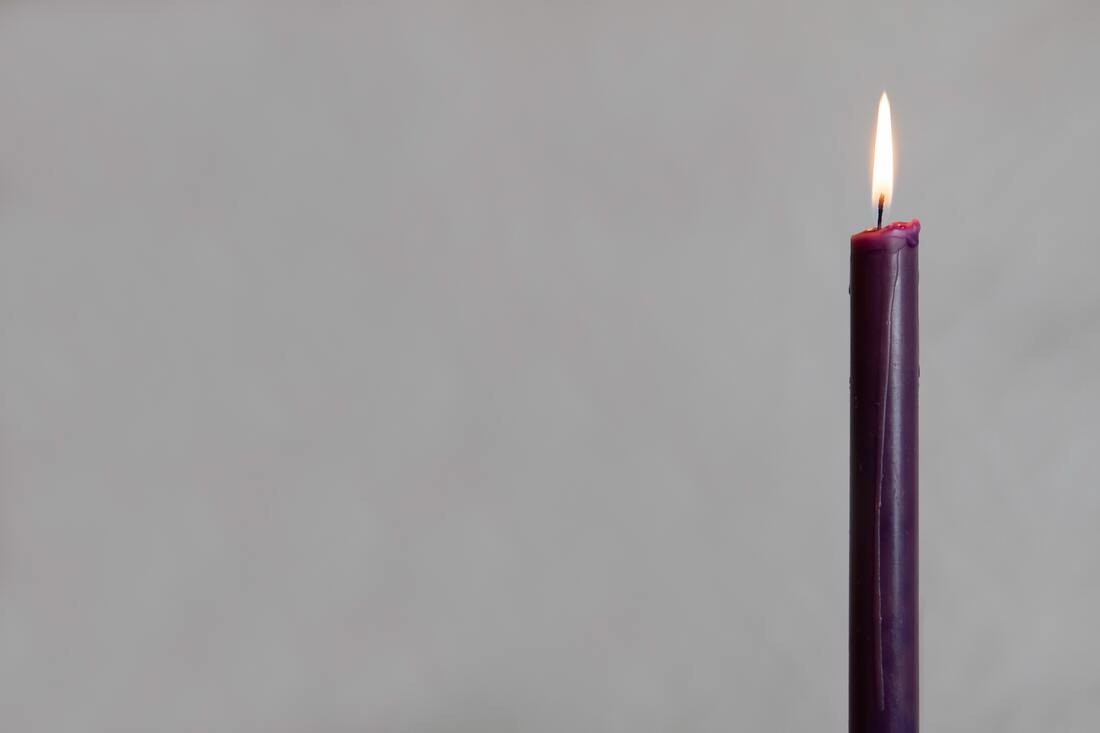
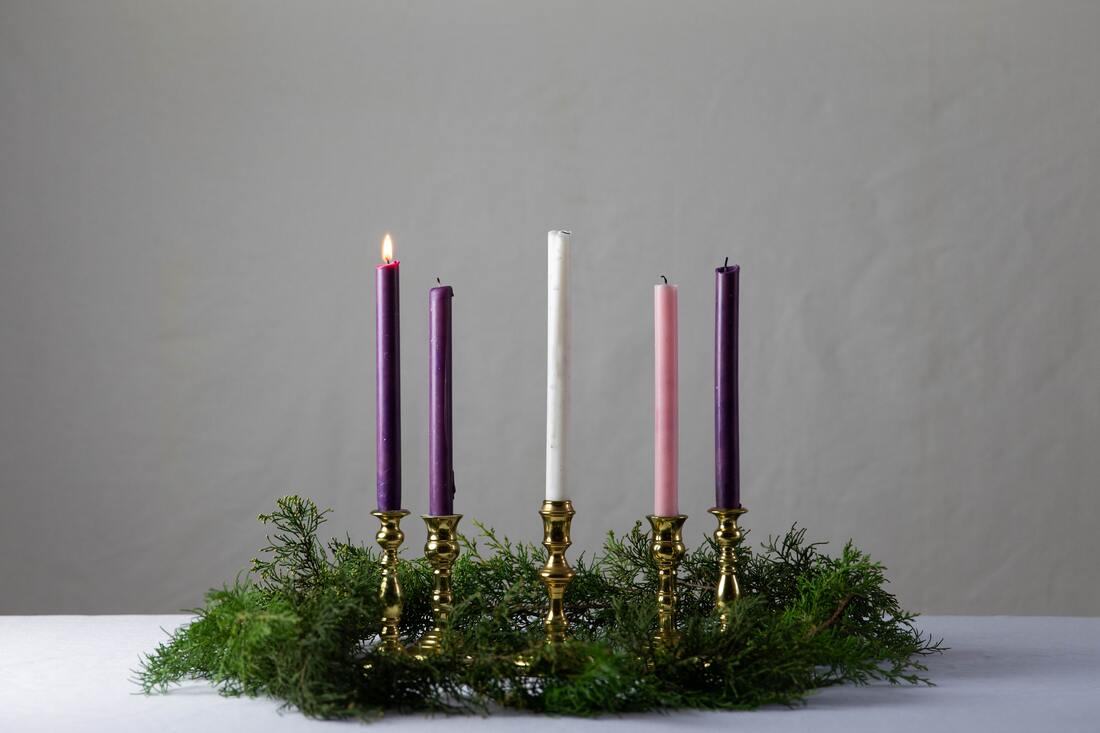
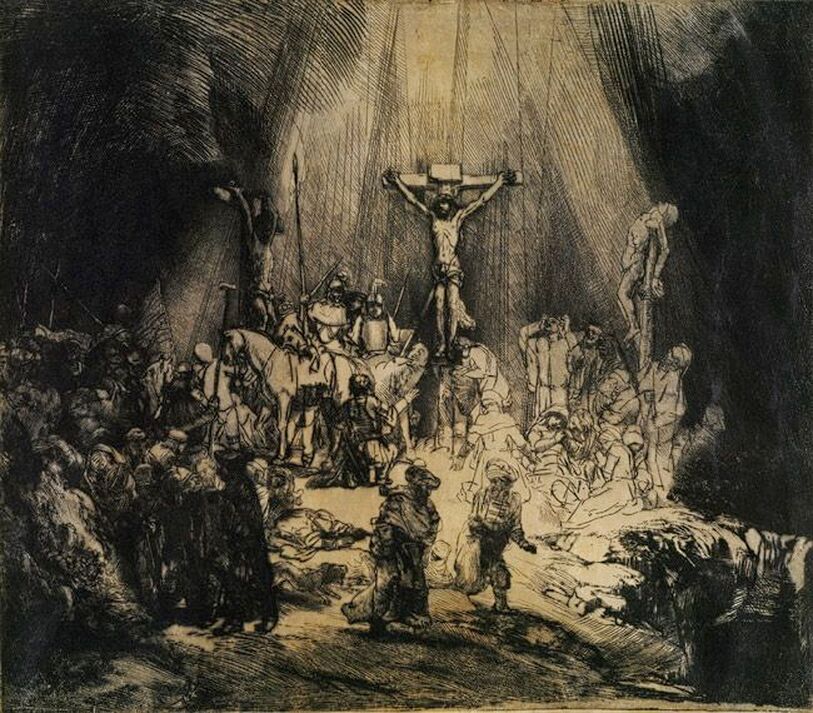
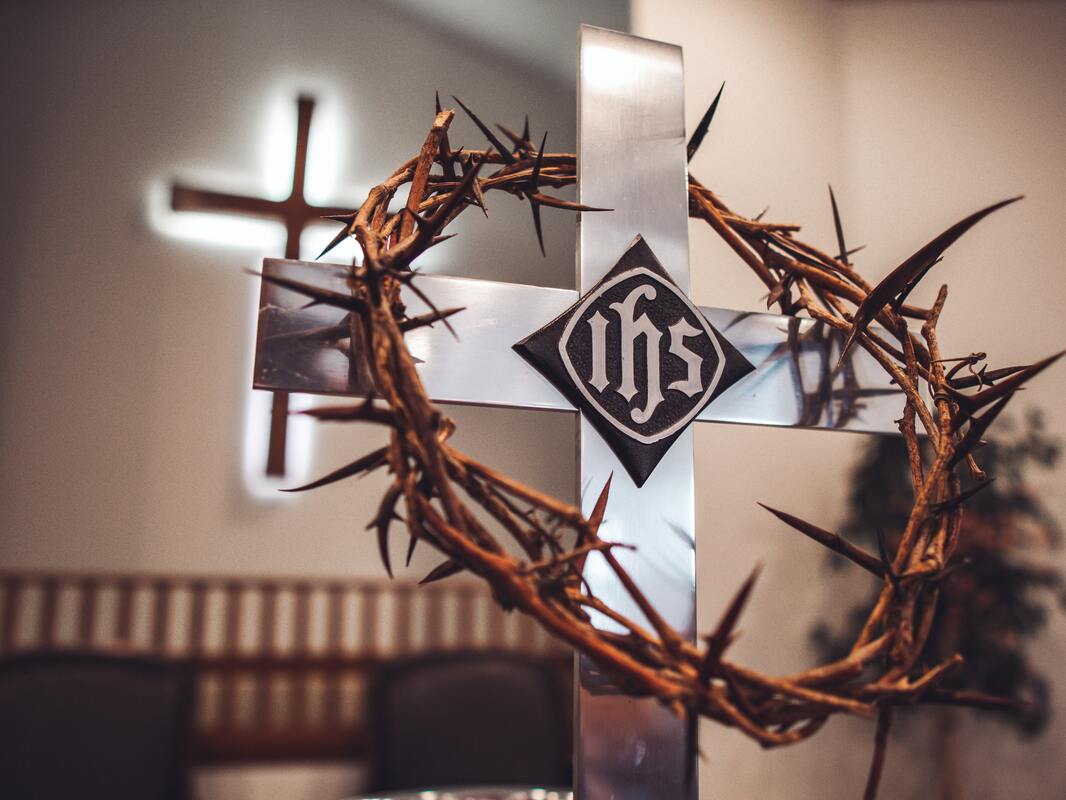
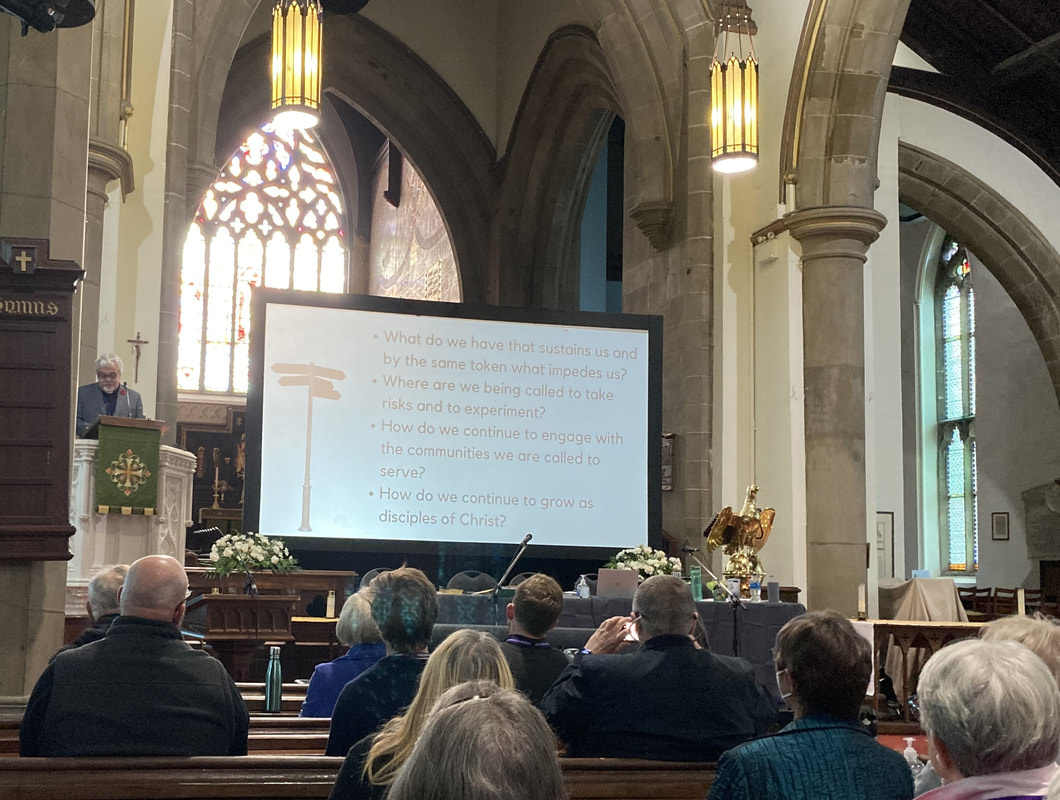
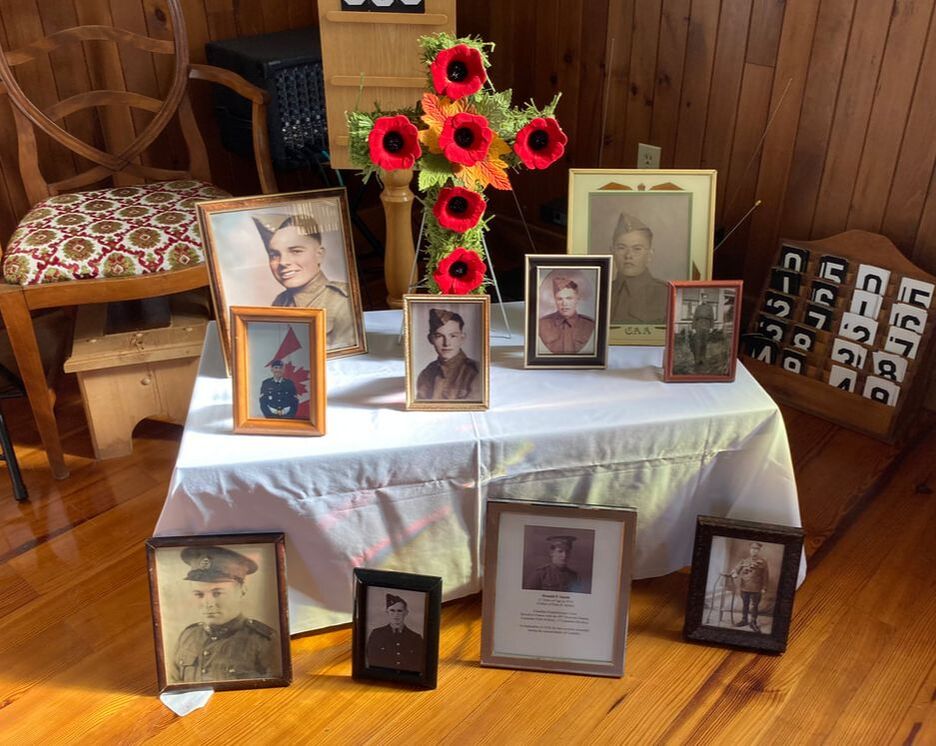
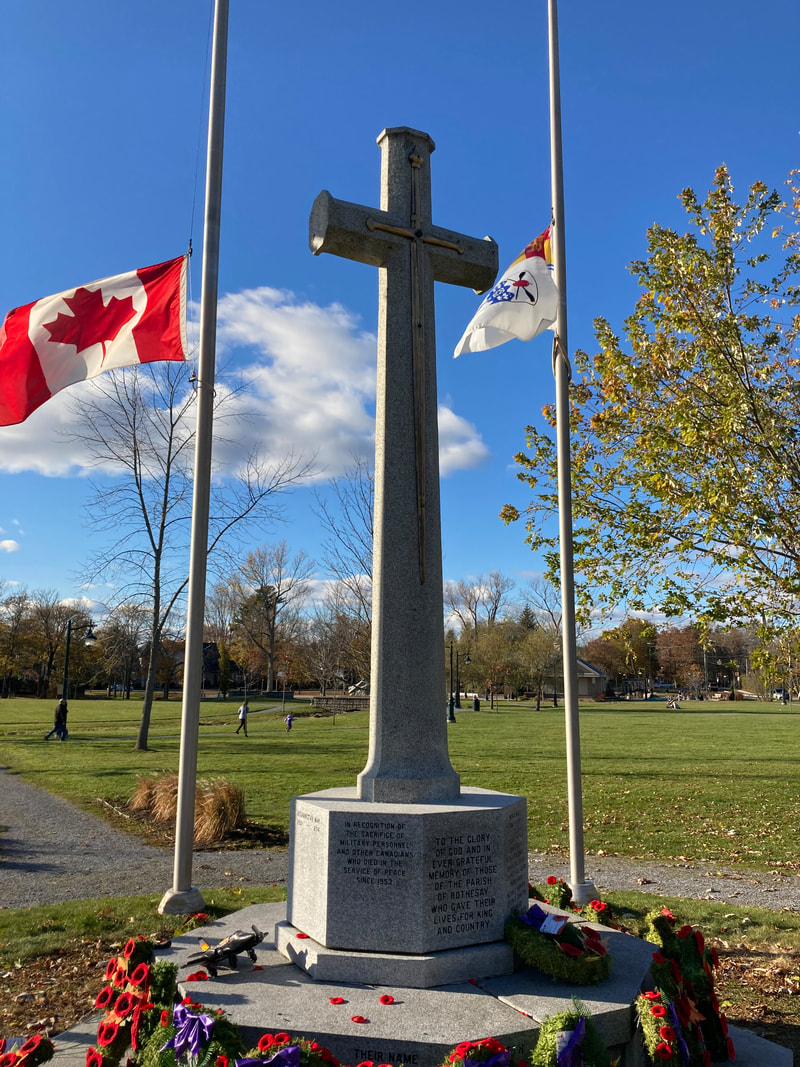
 RSS Feed
RSS Feed
